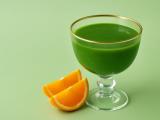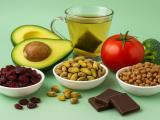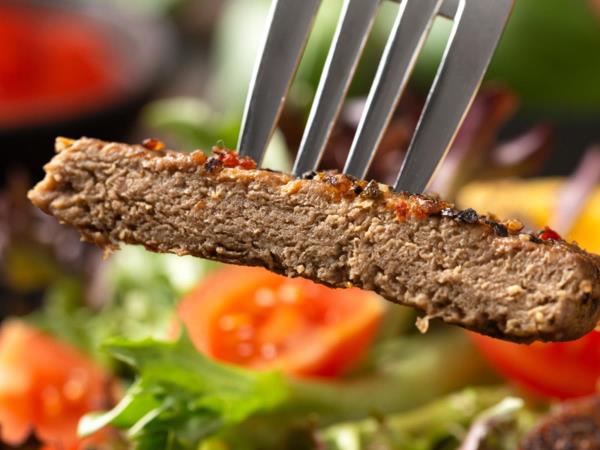Many people today consciously opt for a vegan or vegetarian diet - whether for health, the environment, or ethics. But beware - just because something is plant-based does not automatically mean it is healthy. Plant-based food can also be harmful, especially when it is what experts call ultra-processed food.
What does ultra-processed mean, anyway?
This term first appeared in 2009 when Brazilian scientists from the University of S{-15453}o Paulo developed the NOVA system, which classifies foods based on how far they are from nature. According to this system, foods are divided into four groups:
- Unprocessed or minimally processed foods: these are foods we know from gardens and nature: apples, potatoes, milk, nuts, legumes, eggs, fresh fish.
- Processed ingredients: these are ingredients commonly added during cooking: salt, sugar, oil.
- Processed foods: made at home or in factories, but from basic ingredients, e.g. jams, pickles, homemade bread, or cheese.
- Ultra-processed foods: and here is where the problem starts. These are products with a long shelf life, strange ingredients never used at home (e.g. preservatives, artificial flavors, colorants, emulsifiers, artificial sweeteners, flavor enhancers...). Example? A vegan burger that contains 24 ingredients, half of which you can't pronounce.
In simpler terms: if you can find something in nature or easily prepare it at home - then it probably isn't problematic. But if a product is created in a laboratory and contains chemical additives commonly used in the industry - that's where the problem begins.
Why is ultra-processed food dangerous, even if it's vegan?
Over the past 15 years, more than 60 extensive studies have linked highly processed food to more than 30 different diseases. This includes cardiovascular diseases, high blood pressure, type 2 diabetes, some types of cancer, obesity, and even mental issues like depression and anxiety.
For instance, in 2023, a study published in The British Medical Journal showed that the risk of premature death for people who frequently consume ultra-processed food is 13% higher than for those who eat more natural foods.
And be aware: this also applies to plant-based food!
But plant-based food is better than meat, right?
Unfortunately, it's not that simple. One of the most notable studies, conducted in Brazil at the same institute that developed the NOVA classification, analyzed the diets of over 118,000 individuals from the UK Biobank. These were people aged 40 to 69 whose health status was monitored for several years.
The results? Those who consumed more ultra-processed plant-based food had:
- 5% higher risk of cardiovascular diseases
- 13% higher risk of premature death
And one more thing: reducing the intake of this food by just 10% and replacing it with fresh or minimally processed plant-based food reduced the risk of heart diseases by 7% and mortality by 13%.
This is not a coincidence. Among the most problematic ingredients are:
- artificial sweeteners (which can affect metabolism and insulin resistance),
- emulsifiers (substances that maintain food texture but can irritate the intestines),
- preservatives and industrial toxins, which trigger oxidative stress - a condition where there are more harmful molecules (free radicals) in the body than our body can neutralize, leading to long-term damage to tissues and veins.
Researcher Fernanda Rauber, who led the Brazilian study, stated that even plant-based diets are not safe if we do not pay attention to the level of processing - as this is what causes the most harm.
Example: vegan burger or baked potato?
Let's take, for example, a vegan burger that you can find in almost every store today. It has a vegan certificate, nice packaging, maybe even a bio label. But when you look at the ingredients: soy isolate, methylcellulose (a substance also used in masonry adhesives), potassium acetate (preservative), smoke flavor (artificially enhanced taste), beet dye, and another 12 additives.
A baked potato with garlic, a little olive oil, and herbs has only 4 ingredients - and none of them would be found in an industrial factory. Which of these two meals will be easier for your body to digest?
And what about fast food?
Fast food and unhealthy food are not necessarily the same. Fast food simply means it is quickly prepared - it could also be a salad with nuts, baked falafel with tahini, or a sandwich with avocado on rye bread. It all depends on the ingredients. If you avoid ultra-processed additives, even fast food can become healthy food. The key is knowing what you are eating.
Are plant-based meat substitutes really such a problem?
Here, too, the picture is a bit more complex. In the aforementioned study, it was found that plant-based meat substitutes - such as burgers, sausages, etc. - represent less than 0.5% of all consumed ultra-processed plant-based products. The biggest problem is actually bakery products - bread, pastries, cakes, salty and sweet snacks. These accounted for more than 50% in the study.
So, it's not just about that artificial sausage. The bigger problem is the daily bread from the store, a croissant for a snack, and a "fit" bar eaten after exercise.
How can we help ourselves as before?
In traditional practice, the rule applies: Eat what grows and what you can prepare at home. And looking back - our grandparents didn't know burgers made from pea protein, yet they still lived to 90 years without statins, sugar medications, and monthly specialist visits. Why? Because their food grew in the garden, not in a factory.
If you want to eat healthier, try:
- Fruits and vegetables from the local environment.
- Old varieties of grains and legumes (runner beans, buckwheat, millet).
- Fermenting vegetables at home (fermented foods restore the gut).
- Prepare meals yourself - especially bread, soups, salads, spreads.
- And of course: as little food with 25 ingredients in packaging as possible.
In the end, it's not about whether you eat meat or not, but about how processed your food is. If you want to reduce the risk of heart diseases, diabetes, high blood pressure, and premature death, then look beyond labels like vegan or fit. Because even if something doesn't contain meat, milk, or eggs, it doesn't mean it's free of issues.
Instead of blindly relying on trendy labels, let's trust nature, our bodies, and the wisdom of our ancestors. They didn't have bio certificates, yet they knew what it meant to eat well.









 Would you like to be informed about news on the website?
Would you like to be informed about news on the website?

